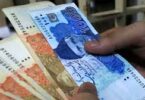F.P. Report
ISLAMABAD: The cyber security experts have pointed out that cyber-attacks are posing threat to the national economy and security.
They called for coordinated national efforts to respond to the problem of irregularity and ambiguity enjoyed by cyber-attackers. These views were expressed by the experts at the 61st meeting of SDPI’s Study Group on Information Technology and Telecommunications organized by Sustainable Development Policy Institute (SDPI) here on Saturday.
Experts say the global economy is feared to lose around 2 trillion dollars by 2019, due to cyber attacks and vulnerability of the system due to activities of cyber crooks.
In 2017, the annual loss to global economy was around $450 billion due to lack of stringent cyber security measures and it is likely to increase to $2 trillion by 2019.
SDPI Executive Director Dr Abid Qayyum Suleri, termed the cyber security a non-traditional security threat, adding, “we are living in fourth industrial revolution era, where securing the cyber space and preparedness to balanced cyber threats is a matter of great concern.”
He said, “in this less human and more technology-controlled society, we should both have military as well as civilian cyber command to handle the growing cyber security threats as well as to ensure individual privacy and security from cyber-attackers. We must act now.”
SDPI Senior Advisor Brig. (Retd) Mohammad Yasin said that the threats of cyber-attacks and hacking are not only there to stay but these are going to expand.
“The expanding cyber space is making it easier for attackers to target infrastructure and services,” he said, adding the next war between rivals will be a cyber-war and the country stronger in cyber warfare will win without taking to the battlefield.
“To meet the challenges, colleges and universities should produce cyber leaders and cyber managers,” said Brig Yasin, adding that a full time civil and military cyber-warfare taskforce should be organized and there should be an international agreement on the fair and lawful use of cyber space.
Member Compliance & Enforcement, PTA, Abdul Samad stressed the need to have a comprehensive national strategy for cyber security.
He said a national strategy was needed to cope with cyber crime, adding the academia should be more focused on cyber security issues and it should be taught as a subject at universities and public should be more aware of the threats.
He said in 2012 a Senate Task Force on Cyber Security, comprising around 40 experts, was established to prepare cyber security policy, strategy, laws and national CERT (Computer Emergency Response Team).
The Task Force prepared an excellent draft on cyber security policy after two years. The policy was presented to the House as a private member bill, but it is yet to be passed.
He said the draft bill was a comprehensive document and with few requisite amendments can be considered.
Former Chairman of PTA, PTCL and PEMRA Mian Mohammad Javed said, “we are still struggling to build consensus on tackling the cyber security and adopt a proactive approach to protect the national econmy. The irregularity and ambiguity enjoyed by cyber-attackers calls for coordinated national efforts to respond to this menace.






